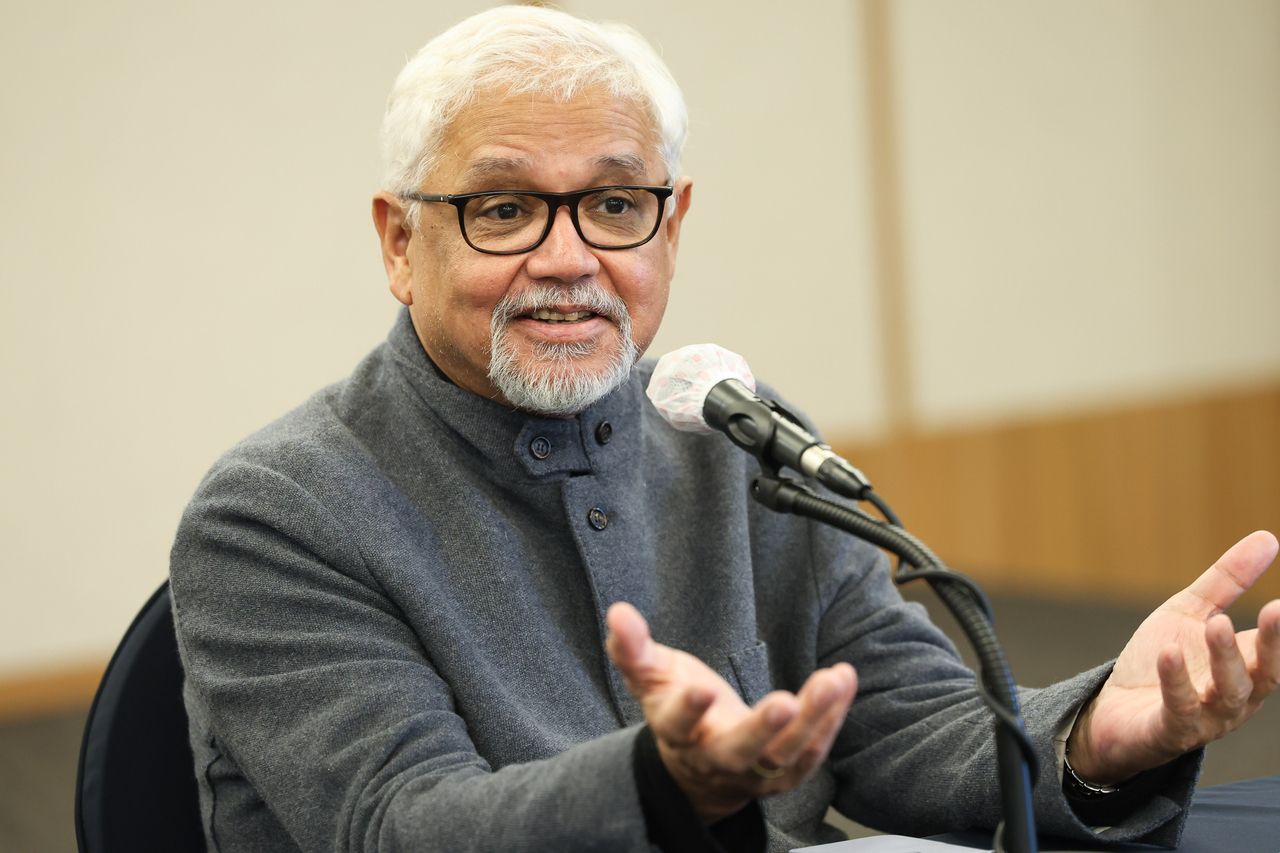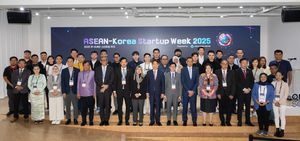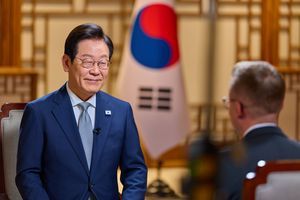 Throughout the long age of high modernity, Amitav Ghosh observes, literature and the arts became intensely human-centered. Now, he believes, the time has come to step away from that and begin recognizing the world beyond ourselves.
Throughout the long age of high modernity, Amitav Ghosh observes, literature and the arts became intensely human-centered. Now, he believes, the time has come to step away from that and begin recognizing the world beyond ourselves.
“This is, to me, a very fundamental challenge today. How do we actually try to recognize the agency of nonhuman entities of many different kinds?” said Ghosh. “And I think it’s increasingly recognized across the world that, in confronting our various environmental crises, this is a very important issue.”
Speaking at a press conference in Seoul on Wednesday, the acclaimed Indian novelist, visiting Korea to receive the 14th Park Kyongni Award, reflected on how literature can respond to the climate crisis and the voices we have long ignored.
“I have to say, the situation looks absolutely disastrous. There’s nothing else you can say,” Ghosh said, reflecting on the climate crisis.
Ghosh added that it is a creative challenge to give voice to non-humans: “Not just animals, but also plants. It’s very interesting to me that Han Kang talks about how she was inspired by the idea of a woman becoming a plant in her book, ‘The Vegetarian.’”
The Park Kyongni Award is an annual international literary award based in Korea. It was established in 2011 to honor the literary legacy of novelist Pak Kyong-ni (1926-2008), renowned for her epic saga “Toji (The Land).” The 16-volume series tells the story of five generations of a wealthy Korean family from South Gyeongsang Province, from the end of the Joseon era (1392-1910) to Japanese occupation and Korean independence.
The literary award aims to recognize novelists worldwide who have significantly influenced the course of literature while preserving its intrinsic value, according to the Toji Cultural Foundation. The prize comes with a certificate of merit, a plaque and an award of 100 million won ($69,500).
Ghosh said he was unable to find an English translation of “Toji” but read several of her short stories and novellas, finding their themes of division deeply interesting because they resonated with his own experience.
Born in Kolkata in 1956, Ghosh made his literary debut with “The Circle of Reason” (1986), a fable-like novel tracing a young man’s journey from Bengal to North Africa and the Middle East, which won France’s Prix Medicis in 1990.
His later works, including “The Glass Palace” (2000), an epic retelling of South and Southeast Asian history through the eras of empire and dictatorship, and nonfiction books such as “The Great Derangement” (2016) and “The Nutmeg’s Curse” (2021), have positioned him as one of the most eloquent literary voices on climate and colonialism.
“I come from a part of the world that was also divided,” Ghosh explained. “My family is originally from what is now Bangladesh, but I grew up in India. That sense of being taken away from one’s homeland, or growing up without that connection, is something I see resonating very much.”
Another aspect that struck him was Park’s attention to dialect.
“I grew up speaking a dialect of Bengali, from Bangladesh or East Pakistan as it was then,” he said. “And because Bengalis have become great migrants, you can hear this dialect in Venice, in Brooklyn. It’s an amazing thing.”
Now dividing his time between India and the United States, Ghosh continues to write in English while rooted in Bengali culture, with themes of postcolonial identity and belonging remaining central to his work.
Recalling early reactions to his books, he said: “When my books came out in the late 1980s and 1990s, the response in Britain and America was often, ‘Oh, these poor writers from the Global South, their lives are so difficult, they must write about politics because they don’t have inner lives.’”
“Now I’ve watched, with some amusement I have to say, how since Trump’s election in 2016, suddenly every American writer is writing about politics.”
“All writing is rooted in society, so it comes out of society and culture, and inevitably, they inform each other.”
Ghosh’s visit to Korea continues with the award ceremony in Wonju on Thursday, followed by a lecture at Seoul National University on Oct. 27 and a public conversation at Kyobo Book Center in Gwanghwamun on Oct. 28.
- 2 NK soldiers briefly cross MDL to apparently chase defecting soldier: sources
- Hybe partners with LAFC
- N. Korea breaks ground on memorial museum for its troops killed in Russia’s war with Ukraine
- Seoul shares open sharply higher on eased US-China tensions
- Lee says ‘carefully’ reviewing impact on financial markets during US tariff talks









Most Commented